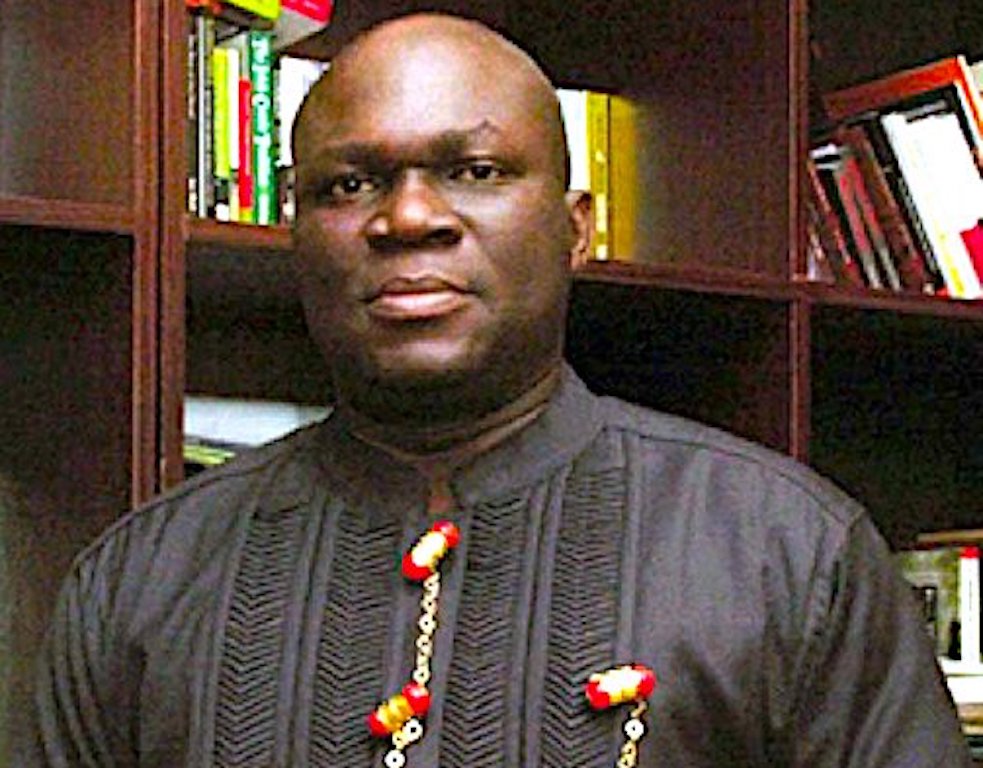Nigeria and the new NNPC, by Reuben Abati
Today, July 19, is set to remain a special moment in Nigeria's economic history - the day the country's main economic survival vehicle, the Nigerian National Petroleum Corporation (NNPC) is officially unveiled by the outgoing president as a business venture. The transition took effect on July 1, in accordance with the provisions of the 2021 Petroleum Industry Act (PIA). But at noon today, NNPC would have officially made this transition from a corporation to a limited liability company, a limited liability company. shares, hereinafter referred to as NNPC Limited, which is a trading company. In some of our media platforms in recent days, the NNPC hierarchy staged a song and dance that the NNPC was indeed on the verge of becoming a new entity. What does this actually mean for Nigerians? While we are all obsessed with politics, with Osun's gubernatorial election being the latest menu item on the plate of commentators and political elites, it seems to me that the transition to be unveiled today at NNPC deserves some interest. Established in 1977, 45 years ago, NNPC manages Nigeria's oil, gas and petrochemical resources, the joint venture between Nigeria and multinational oil companies, and also engages in oil exploration and production across the four refineries in the country.
Crude oil accounts for more than 80% of the country's foreign exchange earnings. Nigeria being identified as the sixth largest oil producer in the world, and with the country endowed with the sweet, low sulfur and premium quality Brent Crude variety, crude oil was effectively the Nigerian equivalent of bonanza. from the sky. In due course, we were told that Nigeria was even more of a gas-producing country than an oil-dependent country. Milk and honey practically flow under Nigerian soil. It was NNPC's business to handle all of this and bring benefits to the country. Nigeria is not the only country that has been so privileged. They have oil and gas in Saudi Arabia, Russia, Qatar, UAE, Venezuela (wrong reference in the circumstances), Libya, Kuwait, USA, Norway and a number other countries. While oil and gas resources have brought power and glory to some countries, Nigeria's experience has been mixed and problematic. As a resource-rich country in the 1970s and 1980s, crude oil in particular proved to be a source of agony and pain for Nigeria. We have wasted the riches. A terrible economy has developed over the years around oil and gas. Politics, ethnicity, greed, corruption and all the other evils that beset the country have found their way into the oil and gas sector. This shouldn't be surprising. The easiest way to make money in Nigeria is to get into the oil business. It was only a matter of time before the people began to agitate for reforms and regime change. And it happened. The oil resource has become the target of seething anger within the system. Those who believe that the oil and gas coming from their soil in the Niger Delta belong to them see no reason why anyone, any group or region that does not produce oil and gas should benefit from the endowments of other people in a supposedly federal system. Oil has become political. Politics has become oily and gassy. At the center of this conundrum was the NNPC, the country's Ministry of Petroleum Resources and everything connected with it.
To address both sentiment and substance around this issue, there have been calls for resource control. From Adaka Boro to Ken Saro-Wiwa and beyond, there have been calls for true federalism, secession, respect for ethnic minority rights and geographic counter-arguments, with the North opposing the South on the question of who owns what, who should get what, and how much – Nigeria's main income being oil and gas. In due time, the Petroleum Industry Bill was introduced to address many issues: governance, regulatory frameworks, community relations and management. When President Muhammadu Buhari unveils a new NNPC this morning, complete with a new brand, logo and identity, with NNPC Limited emerging in place of the Nigerian National Petroleum Corporation, he would be giving effect to a major piece of the Petroleum Act. petroleum industry (PIA). President Buhari can comfortably claim the PIA as one of the achievements of his administration. For decades, Nigerians have complained about the need to reform the oil and gas sector. They asked for a review of joint venture executives. They wanted a new NNPC that would be organized for productivity and efficiency and not just a parastatal government mired in politics and corruption. The oil producing communities also had their grievances regarding justice, fairness and equity and how these were treated so poorly in the larger Nigerian equation.
For decades, Ni...

Today, July 19, is set to remain a special moment in Nigeria's economic history - the day the country's main economic survival vehicle, the Nigerian National Petroleum Corporation (NNPC) is officially unveiled by the outgoing president as a business venture. The transition took effect on July 1, in accordance with the provisions of the 2021 Petroleum Industry Act (PIA). But at noon today, NNPC would have officially made this transition from a corporation to a limited liability company, a limited liability company. shares, hereinafter referred to as NNPC Limited, which is a trading company. In some of our media platforms in recent days, the NNPC hierarchy staged a song and dance that the NNPC was indeed on the verge of becoming a new entity. What does this actually mean for Nigerians? While we are all obsessed with politics, with Osun's gubernatorial election being the latest menu item on the plate of commentators and political elites, it seems to me that the transition to be unveiled today at NNPC deserves some interest. Established in 1977, 45 years ago, NNPC manages Nigeria's oil, gas and petrochemical resources, the joint venture between Nigeria and multinational oil companies, and also engages in oil exploration and production across the four refineries in the country.
Crude oil accounts for more than 80% of the country's foreign exchange earnings. Nigeria being identified as the sixth largest oil producer in the world, and with the country endowed with the sweet, low sulfur and premium quality Brent Crude variety, crude oil was effectively the Nigerian equivalent of bonanza. from the sky. In due course, we were told that Nigeria was even more of a gas-producing country than an oil-dependent country. Milk and honey practically flow under Nigerian soil. It was NNPC's business to handle all of this and bring benefits to the country. Nigeria is not the only country that has been so privileged. They have oil and gas in Saudi Arabia, Russia, Qatar, UAE, Venezuela (wrong reference in the circumstances), Libya, Kuwait, USA, Norway and a number other countries. While oil and gas resources have brought power and glory to some countries, Nigeria's experience has been mixed and problematic. As a resource-rich country in the 1970s and 1980s, crude oil in particular proved to be a source of agony and pain for Nigeria. We have wasted the riches. A terrible economy has developed over the years around oil and gas. Politics, ethnicity, greed, corruption and all the other evils that beset the country have found their way into the oil and gas sector. This shouldn't be surprising. The easiest way to make money in Nigeria is to get into the oil business. It was only a matter of time before the people began to agitate for reforms and regime change. And it happened. The oil resource has become the target of seething anger within the system. Those who believe that the oil and gas coming from their soil in the Niger Delta belong to them see no reason why anyone, any group or region that does not produce oil and gas should benefit from the endowments of other people in a supposedly federal system. Oil has become political. Politics has become oily and gassy. At the center of this conundrum was the NNPC, the country's Ministry of Petroleum Resources and everything connected with it.
To address both sentiment and substance around this issue, there have been calls for resource control. From Adaka Boro to Ken Saro-Wiwa and beyond, there have been calls for true federalism, secession, respect for ethnic minority rights and geographic counter-arguments, with the North opposing the South on the question of who owns what, who should get what, and how much – Nigeria's main income being oil and gas. In due time, the Petroleum Industry Bill was introduced to address many issues: governance, regulatory frameworks, community relations and management. When President Muhammadu Buhari unveils a new NNPC this morning, complete with a new brand, logo and identity, with NNPC Limited emerging in place of the Nigerian National Petroleum Corporation, he would be giving effect to a major piece of the Petroleum Act. petroleum industry (PIA). President Buhari can comfortably claim the PIA as one of the achievements of his administration. For decades, Nigerians have complained about the need to reform the oil and gas sector. They asked for a review of joint venture executives. They wanted a new NNPC that would be organized for productivity and efficiency and not just a parastatal government mired in politics and corruption. The oil producing communities also had their grievances regarding justice, fairness and equity and how these were treated so poorly in the larger Nigerian equation.
For decades, Ni...
What's Your Reaction?






















